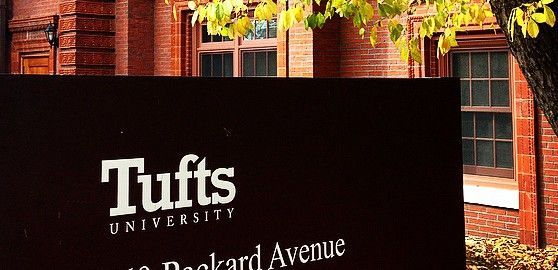One Step Forward: Acknowledging the Past and Building Peace by Andrew Dusek
“You’re very welcome to Belfast. We love visitors—it’s each other we hate.” This guileless greeting perplexed me during my first visit to Northern Ireland in the winter of 2010. It had been more than 10 years since the Good Friday Agreement ushered in peace but not reconciliation. Everywhere I saw progress towards a united future, but it was impossible to ignore the need to address a divided past.
The multidimensionality of disturbed relationships continues to complicate the process of reconciliation at the individual, community, and national levels in Northern Ireland. Entrenched dichotomies—whether Protestant and Catholic or unionist and nationalist—continue to serve as literal and figurative barriers to peace. As I strolled among the painted paramilitaries and memorialized martyrs on Belfast’s persistent “peace walls,” I witnessed the on-going difficulty of accommodating British and Irish symbols into a society that is still trying to grapple with national historical memory. This fraught process has complicated the creation of a cohesive Northern Irish identity and impedes restorative and retributive approaches to justice.
The possibility that victims will receive justice diminishes with each passing year, but hope is not lost. Although perpetrators have passed away, evidence is gone, and weapons have been surrendered to decommissioning, legal inquiries continue to illuminate the truth about the Troubles. As perpetrators are incorporated into the peace process and alternative means of prosecuting political visions become available, there is reason for cautious optimism.
Today, strong community leaders like Lord Alderdice and Mr. Donaldson are engaged in the construction of an inclusive Northern Irish identity at the national level. Both men are cognizant that psychological damage cannot be resolved, and dealing with pain held by individual victims and Northern Irish society as a whole requires very different approaches. While many would prefer to forge ahead rather than reopen past trauma, Lord Alderdice and Mr. Donaldson rightly emphasized posterity as a motivation for coming to terms with the past. It is crucial that the descendants of victims and perpetrators do not suffer the same fate as their forbearers.
During my time in Northern Ireland, a former editor of the Belfast Telegraph told me that he could not envisage enduring peace in the next one or two generations because sectarianism is an entrenched mindset. It may be true that societal reconciliation is still far afield. However, with leaders like Lord Alderdice and Mr. Donaldson at the Centre for Democracy and Peace Building, progress towards sustainable, societal peace is on the right track.
by Andrew Dusek, The Fletcher School of Law and Diplomacy at Tufts University



